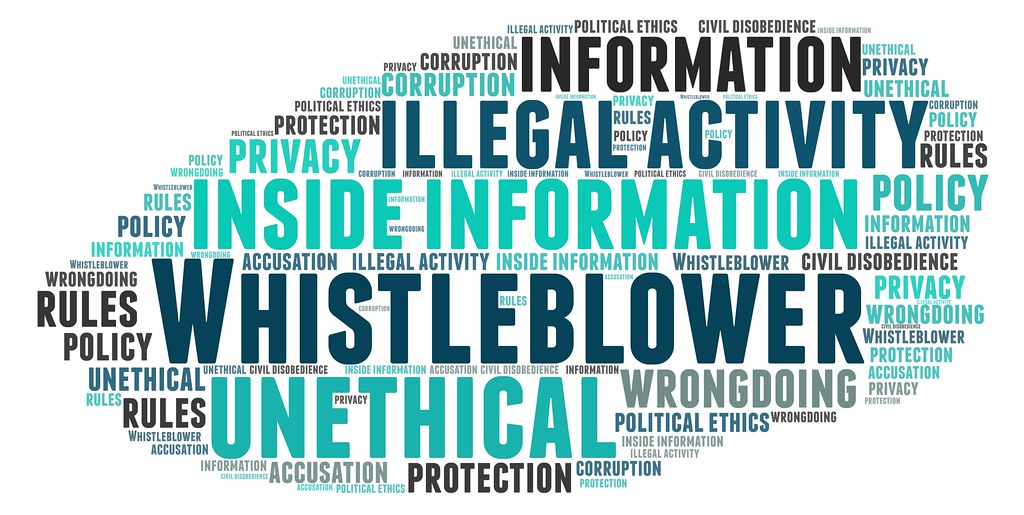I have commented previously on the role that whistleblowers have to play in the context of alerting the appropriate authorities or corporate governance structures of apparent acts of money laundering, fraud or corruption. In some respects, whistleblowers are the Sword of Damocles hanging over the heads of those who are corrupt, or who may be tempted by corruption.
If the person next to you, above you, or under you can’t be trusted to keep your dirty secret a secret, then you have a very big decision to make before attempting to satiate your desire for a quick buck. In terms of crime prevention, whistleblowers have a significant role to play.
I laud the American lawyers taking on the defense of Greek whistleblowers who reported alleged corruption by a major pharmaceutical company. If we can’t protect them, then nobody will come forward. Corruption will increase and the possibility of capturing those responsible will decrease proportionately.
Bribery and corruption cause misery, and inevitably it is the most vulnerable who suffer as a consequence. So, when a whistleblower does come forward it is a momentous step, as inevitably they appreciate that there will be some negative impact upon their lives. If the guilty conduct a simple process of elimination, they will inevitably draw up a very short shortlist of those who may be the source of the incriminating information.
There are those who disagree with me. I accept that some whistleblowers may be driven by mischief: an angry, maligned and slighted employee perhaps. Those who whistleblow to the U.S. Securities and Exchange Commission program, may be rewarded financially, and some of the payouts are substantial. Some argue that this is reason enough to distrust the whistleblower concerned, as they may be incentivized from the resultant fine if their information is found to be actionable by the SEC.
Ultimately, governments have a decision to make. Would they rather have a whistleblower program that acts as a serious deterrent to those who would commit the crimes that negatively impact on not only a company’s standing, but also the government’s standing too? One commentator who responded to a previous post I wrote on this subject offered the view that the SEC program may encourage malicious or baseless whistleblowers complaints simply to line their own pockets.
Although this may be an issue in a few instances, the “belt and braces” requirements of a full SEC investigation would ensure that any malicious or baseless complaints would be identified early on in the process and dismissed. Only the guilty or those with something to hide need lose sleep at night.
This being the case, it is clear to me at least that a whistleblower program should be in place in every country, especially those developed countries such as Greece which are members of the European Union, and signatories to the Council of Europe’s Convention of Corruption. It is alarming that any established state would fail to recognize the value in whistleblowing and the positivity it generates in a regulatory context.
As I have stated, only those with something to hide need fear the whistleblower.
With thanks to Tony McClements, Senior Investigator at Martin Kenney & Co, for his assistance with this post. He served for 33 years with UK police forces and has specialised in Fraud & Financial Investigation since 1998. He is also a lecturer in these subjects at the University of Central Lancashire (UCLAN).
Martin Kenney is Managing Partner of Martin Kenney & Co., Solicitors, a specialist investigative and asset recovery practice based in the BVI, focused on multi-jurisdictional fraud and grand corruption cases. In 2014 he was the recipient of the ACFE’s highest honor: the Cressey Award for life-time achievement in the detection and deterrence of fraud. In 2017, 2018 and 2019 he was chosen as a global elite “Thought Leader” by Who’s Who Legal and also selected as the number one offshore asset recovery lawyer worldwide over the same period.


